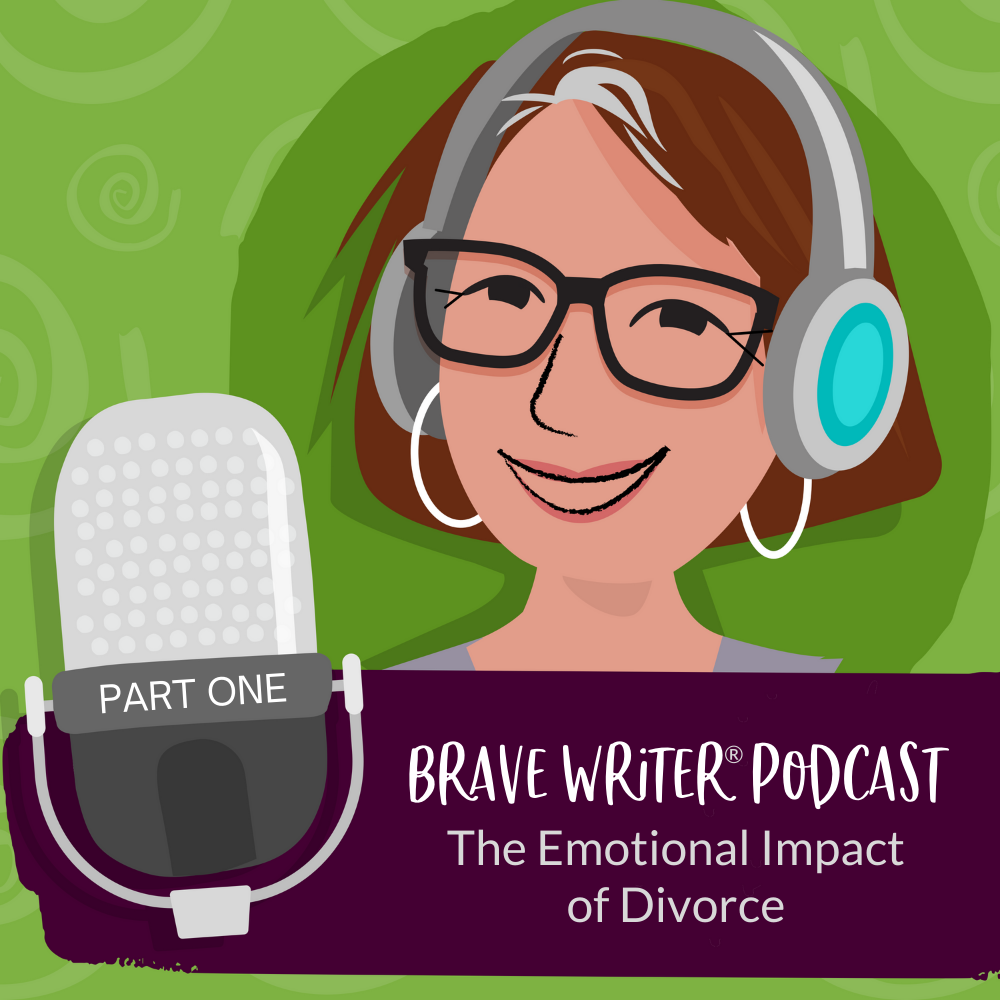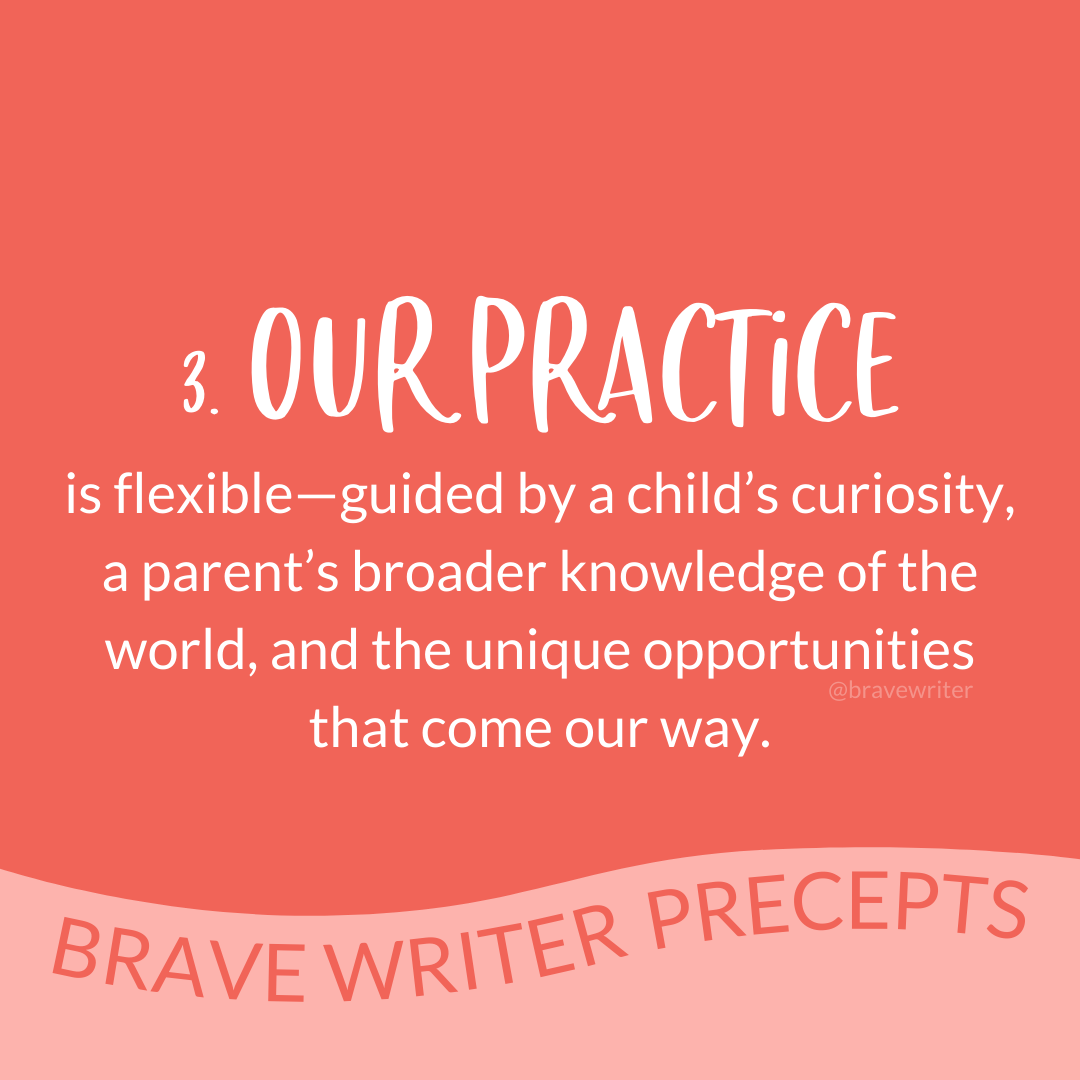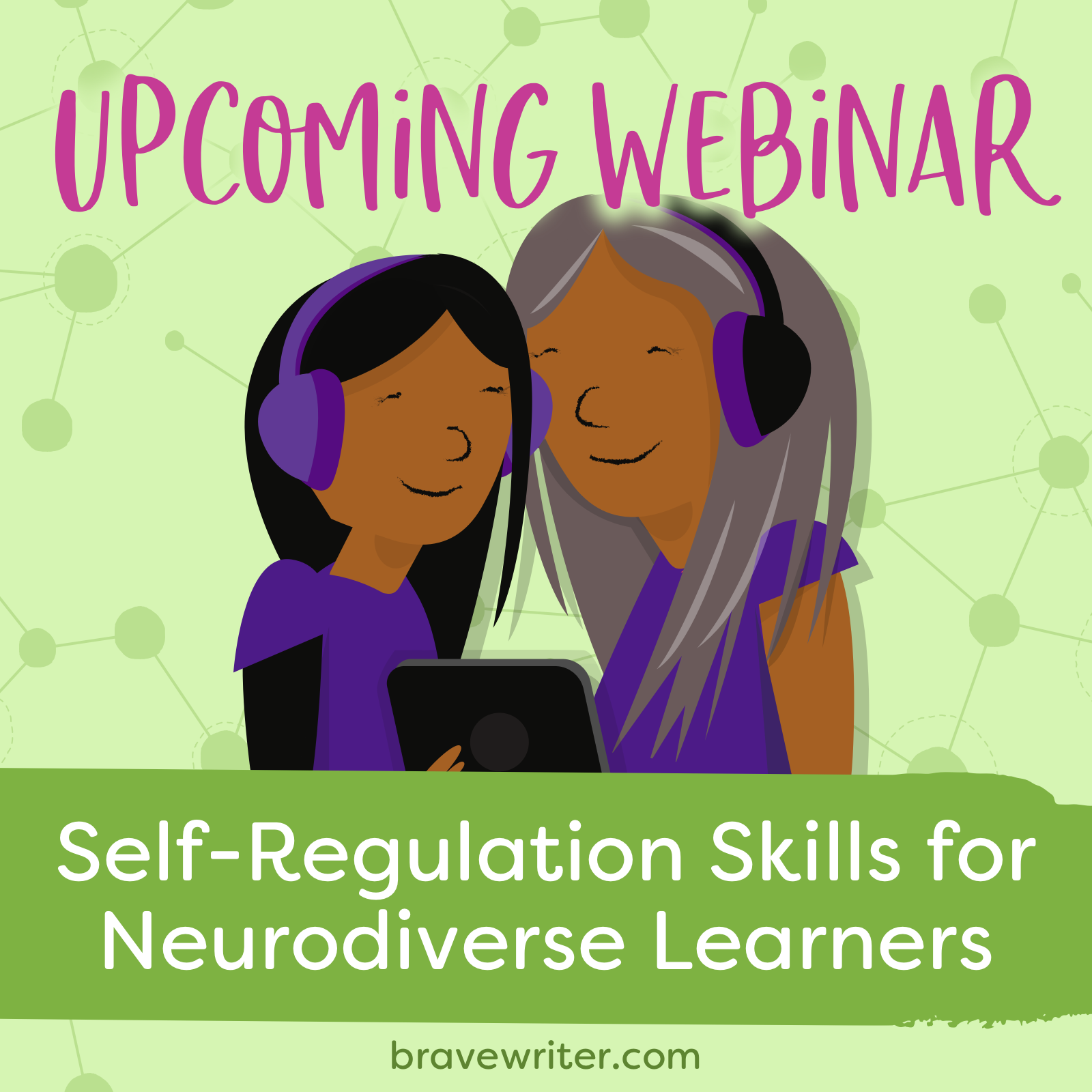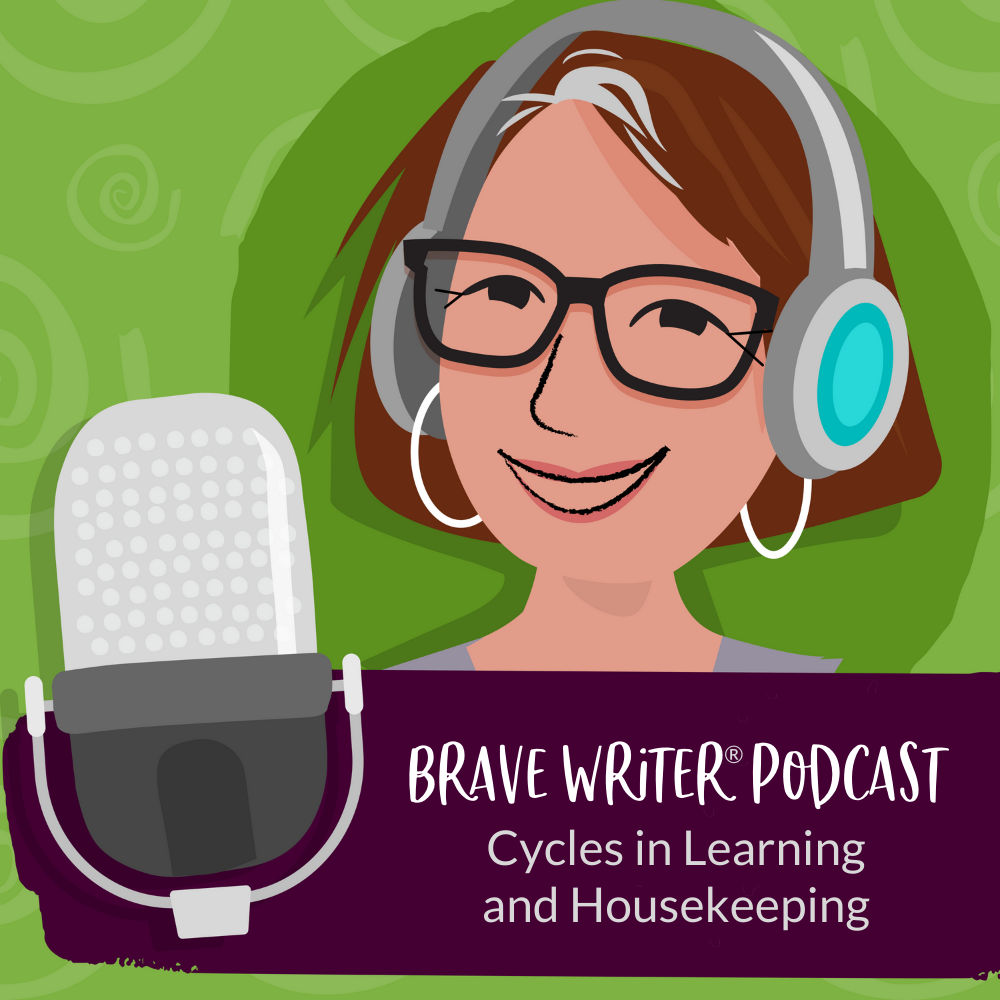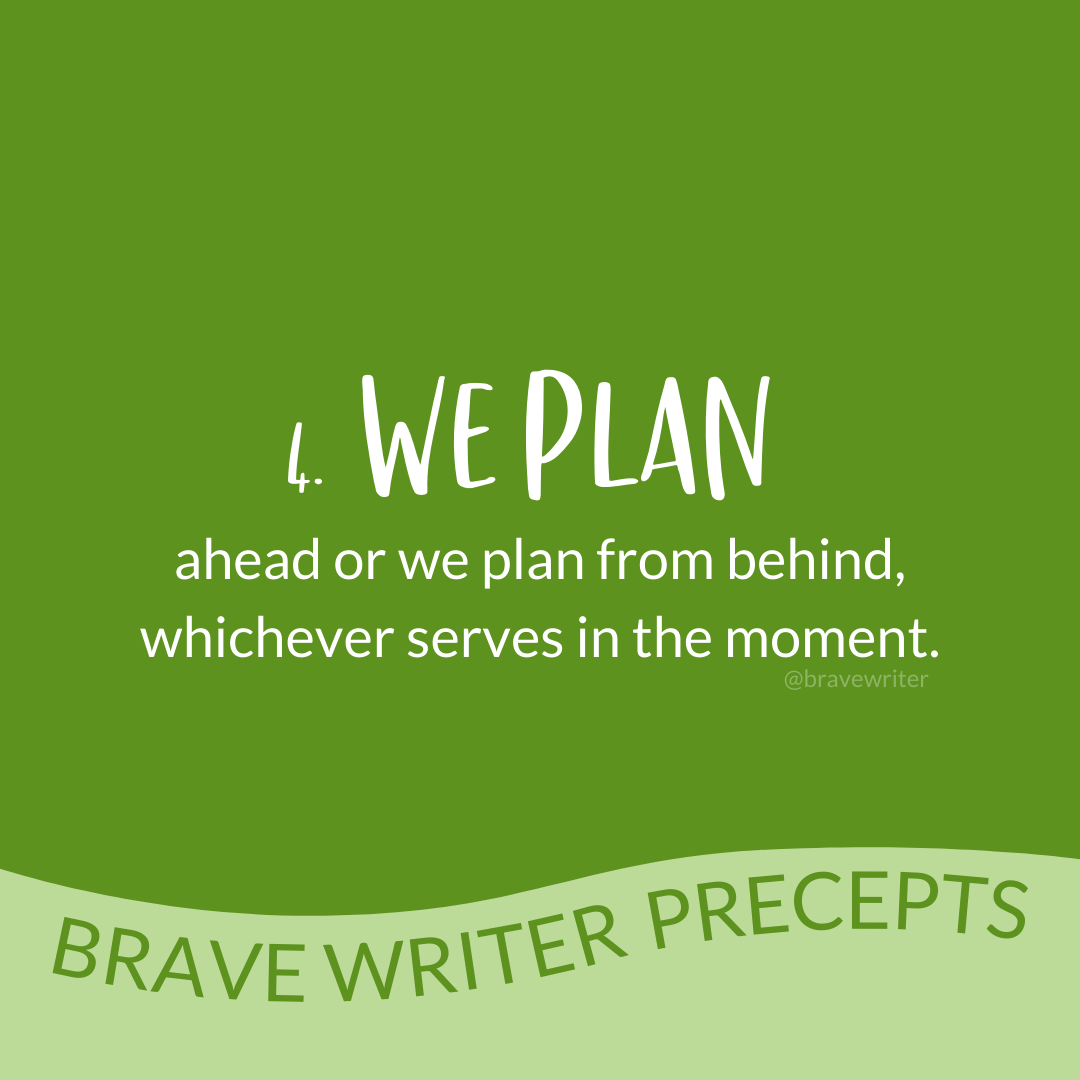
The fourth Brave Writer precept is: We plan ahead or we plan from behind, whichever serves in the moment.
The bane of everyone’s existence is PLANNING.
Which are you?
Team Plan Ahead—you don’t feel able to begin until you know exactly what’s coming next. You can deviate from the plan, but you must have a plan to start or you feel discombobulated (that’s a weird word to spell!).
Team Plan from Behind—you get inspired by an idea and run with it, then later give yourself credit on your calendar, in your planner, or via assessment tool.
For me, ever the unpredictable personality type, I toggled between these two. When my world got weedy and overgrown, planning ahead reminded me I would eventually get to everything.
Once the plan became a tedious drudge, I’d break free and follow a wild, inspired idea. But since the new idea wasn’t ON THE PLAN, I had a hard time giving myself credit for the brilliance that followed.
One day I realized: IT ALL COUNTS.
Every bit of it counts: the pre-planned and the post-planned activities and inspirations and habits.
It’s okay to plan ahead: peaceful vision of my future.
It’s good to plan from behind: giving myself credit for the good things that happen that never make it to the calendar in advance.
Today’s precept liberates you to both provide a little structure and to fly free of it when needed. The balance between the two will match your personality, so let your planning style flag fly!


